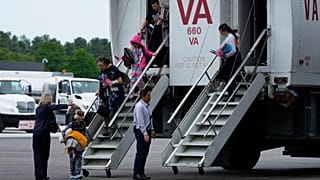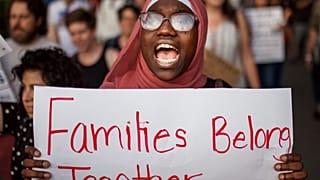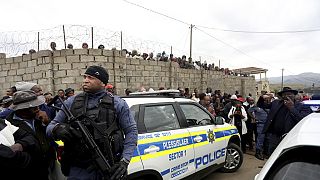Muammar Gaddafi death
Ten years since Moamer Kadhafi was slain by Libyan rebels, the North African country is still struggling to emerge from the violence sparked by his overthrow.
A year-long ceasefire and a UN-led peace process have barely papered over deep divisions, but analysts hope that the upcoming election will resolve the crisis.
Kadhafi ruled Libya with an iron fist for 42 years after a 1969 coup against the monarchy, portraying himself as a revolutionary, Arab and African hero while mercilessly crushing all opposition.
Since Gaddafi’s demise, Libya has fractured along regional and ideological lines, with an assortment of mafia-like militias and their foreign backers vying for control of the oil-rich country.
"The reason why we have remained attached to the old regime is that the February 2011 events (beginning of the uprising) only brought wars, desolation, divisions and attacks on the sovereignty of our country," said Fathi al-Ahmar, engineer.
The ceasefire agreed to in October 2020 continues to hold and the Government of National Unity is hanging on as Libya's sole government.
The presidential poll is set for December 24 and legislative elections in January
"Our stance remains the same. We await the removal of political and legal restrictions on Seif al-Islam, so we can support him," said Ahmed Abu Hriba, journalist
The upcoming polls appear tailor-made for a bid by military strongman Khalifa Haftar and was passed in a move many of his opponents say bypassed due process.












00:42
UN condemns deadly drone strike on peacekeepers in Sudan’s Kordofan
01:58
Femicide not officially recognised in Kenya despite rising cases
01:24
UN chief calls on Eritrea, Ethiopia to respect border pact on its 25th anniversary
01:00
Central African Republic prepares for critical elections amid persisting instability
01:49
UN sounds alarm on funding cuts for Egypt’s vulnerable
01:14
UN marks 10th anniversary of day of genocide prevention and commemoration